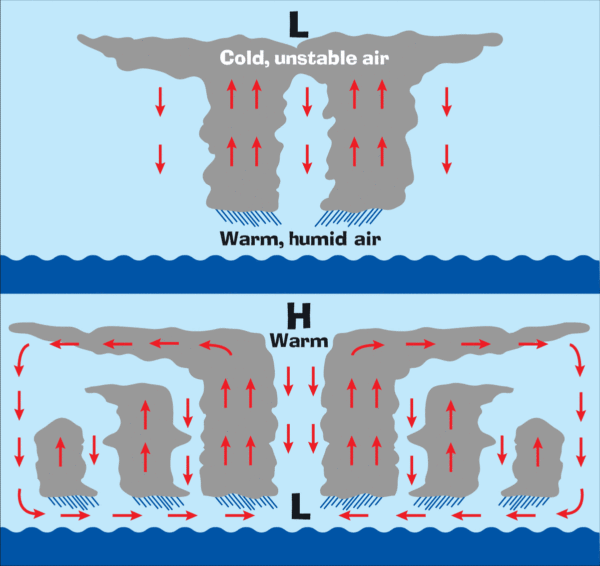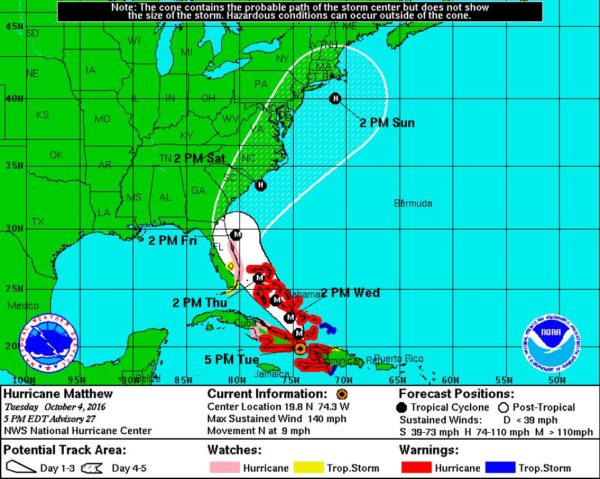“She didn’t even know what she’d do when she got back to New Orleans, but inside she felt a yearning to shove her hands in the dirt, to cling to the ground there, forever.” -Sarah Rae
Hurricanes are among the most destructive natural disasters to occur on Earth, with extensive flooding, property damage and loss of life commonly accompanying them. But they’re also inevitable consequences -- at least on our world -- of two simple factors: warm ocean waters and winds.
 The formation of a hurricane relies on warm, humid air, winds, and pressure changes. Image credit: NASA's SciJinks, via http://scijinks.jpl.nasa.gov/hurricane/.
The formation of a hurricane relies on warm, humid air, winds, and pressure changes. Image credit: NASA's SciJinks, via http://scijinks.jpl.nasa.gov/hurricane/.
Thanks to the physics of temperature, pressure, phase changes and air flow, the development of tropical cyclones during the right time of year is unavoidable. Most of them will turn out to be harmless to humanity, but under the right conditions, catastrophe can ensue.
- Log in to post comments
More like this
“Life and death matters, yes. And the question of how to behave in this world, how to go in the face of everything. Time is short and the water is rising.” -Raymond Carver
As we make our way through October, Halloween approaches here at Starts With A Bang! But as eerie as the world and our Universe…
"The hurricane flooded me out of a lot of memorabilia, but it can't flood out the memories." -Tom Dempsey
As I write this, the gulf coast is currently being battered by Hurricane Harvey, with a few locations already having accumulated more than three feet of rainfall. This storm shows no signs of…
A "pre-existing condition" in the North Indian Ocean stoked the sudden intensification of last year's Tropical Cyclone Nargis just before its devastating landfall in Burma, according to a new NASA/university study. The cyclone became Burma's worst natural disaster ever and one of the deadliest…
The Pacific Decadal Oscillation, or PDO, affects sea surface temperatures and wind flow in the North Pacific. This graphic from NASA shows sea surface temperature departures from average, as well as wind anomalies (arrows), for different phases of the PDO. Credit: NASA JPL.
The Bering Sea, west of…





I wonder what tropical cyclones were like in, say, the Devonian period (around 400 million years ago), where mean surface temperatures were in the range of 30°C (compared to 14°C today), and atmospheric CO2 levels were eight times preindustrial levels, and most of the major continental landmasses were clustered together and surrounded by a world ocean. The earth must have experienced tropical cyclones of a power that would dwarf those of today. All of the main ingredients for making powerful tropical cyclones were present in much greater quantities then.
Would hurricanes form if there were no land masses? (I don't know how much the presence of land contributes to the needed winds.) Would they ever go away?
@Bunny #2: Yes and yes.
Hurricanes form (from intensification of tropical depressions to tropical storms to hurricanes) over open ocean, essentially as a result of energy transfer from warm water to atmosphere.
They degrade over land masses where that energy source isn't present, and also degrade over water as they move to higher latitudes and colder waters.
Ah, right, the higher latitudes. I didn't think of that. Thanks, Michael!
re: #2
Jupiter comes to mind.. gas planet, no land, yet huge storm